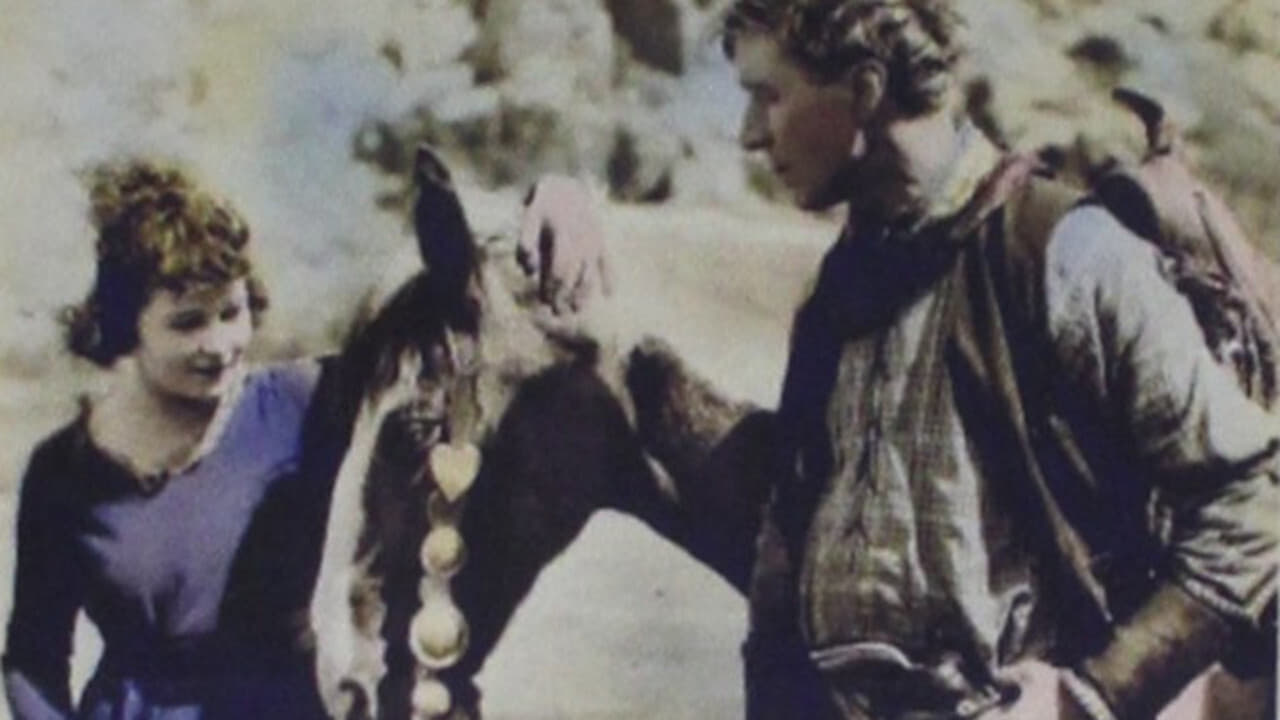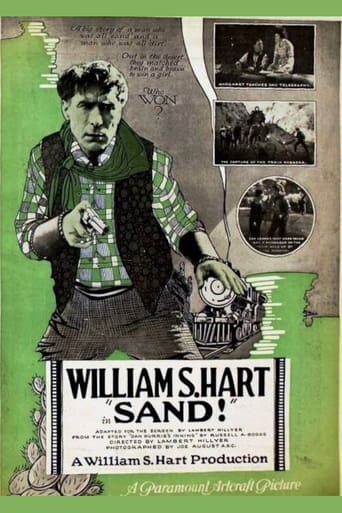

....that's what a reviewer stated in the "Moving Picture World" in 1920. He also went on to say that it was a better quality production than some of Hart's more recent movies and even though I have only seen a handful, this is definitely a superior Hart film. William S. Hart was trying to strive for a greater variety in his films - movies that featured him in more urban settings and playing men of different occupations. He was also determined to try to recapture the simple days when his only concern was his little western company and he didn't have to get involved with business and who owned what asset (he and Ince had already been to court with a series of lawsuits and at 55 he had had enough of wrangling!!).Unlike what another reviewer said "Sand" didn't refer to Hart's horse (he was called "The Boss") but was another name for grit and Dan Kurrie (Hart), after years in the wilderness, needed plenty of that. He is on his way to Condor to replace an old station agent who is being forced to retire but when he realises that the old timer is his sweetheart's father he refuses the job. Pop assures him he has another job but it is all part of Joseph's plan to have both Pop and Margaret working at his shop so he can be free to romance Margaret without interference.This was a chance for Hart to make a more contemporary film and he seized the opportunity. The first thing I noticed was the absence of the flowery and overly poetic titles that were a Hart trademark, in their place were shorter conversational titles that forwarded the narrative. When Dan meets up with Peter, Margaret overhears him excitedly asking about an old and dear friend and immediately assumes it is another woman. It is really his horse and the love that Hart exhibits toward "The Boss" has much power and emotion. There is another girl, peppy Josie Kirkwood (Patricia Palmer), but she has long loved Dan's friend Peter. The villain is Joseph and after a leisurely 20 minutes things get started. The safe is broken into, conveniently when Dan is otherwise engaged, but the robbers get nothing because Dan has forgotten to deposit the money. Dan is also hot on the trail of a desperate "Mexican" gang who rob trains then mysteriously disappear while crossing the river but the information he receives allows him to surprise them just before their next hold up!!!Patricia Palmer had a very colourful history. That was just one of the many aliases she used to escape notoriety, her real name being Margaret Gibson and on her death bed she made the confession that she was the murderer of William Desmond Taylor. It all seemed to tie in with events at the time as from the beginning of her Hollywood career there were arrests for vagrancy and opium dealing. She then returned to Hollywood as Patricia Palmer but not long after Taylor's death she disappeared, resurfacing with yet another alias before she eventually left the country.Highly Recommended.
... View MoreOne of my top picks for pre-sound westerns is the William S. Hart 1920 production, "Sand". (There is no exclamation mark after the title. The entry in the Library of Congress is wrong. "Sand" is the name of Hart's horse, who has an important role to play in the plot). Using a story by Russell A. Boggs as a kick-off, director Lambert Hillyer has fashioned a very interesting script with a well-developed plot and realistically full-blooded characters, set against rugged backgrounds with lots of fascinating details. For instance, I love the bit where hero Hart deliberately allows a really nasty bushwhacker to escape. And of course all the railroad lore had me locked in a seventh heaven. The acting is great. Bill Hart, Mary Thurman, G. Raymond Nye (and to a lesser extent, the lovely Patricia Palmer who made nearly 150 movies between 1913 and 1929) turn in engrossingly realistic performances. Production values are first class, with a special nod for Joe August's fine camera-work.
... View MoreWhen Chaplin, Fairbanks, Pickford and Griffith were setting up United Artists in 1919, William S. Hart almost went along with them. But Paramount offered him a brand new contract, and he stayed with them..... and found the studio sabotaging him almost from the beginning of the new contract. He wanted to get away from his standard cowboy story and came up with this railroad story. They shelved it, got him to do something more usual, and then demanded a new ending for this movie. This was not unusual for Paramount. They invented block booking, and worked their stars very hard -- in one or two cases, to death: Wallace Reid, for example.So, what is the net result for this William S. Hart programmer? It's an excellent piece. You get a lot more close-ups of Hart than usual, as he tones down his usually broad characterizations except when he is dealing with the fact that he has lost the girl he loves. There's a lot more stillness in his acting than usual, and, if takes a good long while before his cameraman, Joe August, gets to show us some good scenery and action, well, the story of conflict between old and new, of sense and compassion, love and honorable behavior is a well told tale, like all the Hart movies I have seen.
... View More